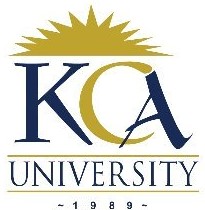
UNIVERSITY EXAMINATIONS: 2011/2012
YEAR I EXAMINATION FOR THE BACHELOR OF SCIENCE IN
INFORMATION TECHNOLOGY
BIT 1305 COMPUTER NETWORKS
DATE: APRIL 2012 TIME: 2 HOURS
INSTRUCTIONS: Answer Question One and Any other Two Questions
QUESTION ONE TOTAL MARK – 30 COMPULSORY
a) Define the following terms as they are used in computer networks:
i. Transmission medium [1 Mark]
ii. Induced noise [1 Mark]
iii. Multimode [1 Mark]
iv. Access method [1 Mark]
v. Physical topology [1 Mark]
b) Differentiate, in terms of characteristics, between voice and data communication by giving at least
three (3) characteristics. [6 Marks]
c) Discuss at least three (3) services that networks provide for companies. [6 Marks]
d) “Sharing of resources” and “New and Novel applications” are two motivations for setting up
computer networks. Briefly discuss them. [4 Marks]
e) There are various ways in which computer networks can be categorised or classified including
“Access Possibilities”. Discuss this categorization. [2 Marks]
f) What are the main types of computer networks in the above (e) category? [2 Marks]
g) Given the IP address 167.34.32.45, identify the following:
i. IP class [1 Mark]
ii. Network address [1 Mark]
iii. Subnet mask [1 Mark]
iv. Host address [1 Mark]
h) Describe any two (2) uses of networks at home. [1 Mark]
QUESTION TWO TOTAL MARK – 20
a) A variety of devices are used in networking and internetworking. Give any two (2) clear differences
in each pair of the following:
i. Bridge and Router [2 Marks]
ii. Hub and Switch [2 Marks]
iii. Repeater and amplifier [2 Marks]
b) Briefly discuss any three (3) building blocks of a computer network. [6 Marks]
c) Discuss any four (4) factors that one should consider in choosing a transmission medium.
[8 Marks]
QUESTION THREE TOTAL MARK – 20
a) Describe the three (3) main types of physical topologies of computer networks. [6 Marks]
b) Describe how CSMA/CD works. [4 Marks]
c) Discuss the following access methods:
i. Contention [2 Marks]
ii. Token Ring [2 Marks]
iii. Demand priority [2 Marks]
d) Give any four (4) advantages of fibre optics as a transmission medium. [4 Marks]
QUESTION FOUR TOTAL MARK – 20
a) Describe how circuit-switching works. [3 Marks]
b) Differentiate between Metropolitan Area Networks (MANs) and Wide Area Networks (WANs).
[4 Marks]
c) The OSI and the TCP/IP are common network reference models.
i. Give three (3) common aspects between the two protocol stacks [3 Marks]
ii. Describe any three (3) differences between the two protocol stacks [6 Marks]
d) Briefly discuss any two (2) propagation modes used in wireless media. [4 Marks]
QUESTION FIVE TOTAL MARK – 20
a) Mr. Kitheka, an advocate, has a law firm in Westlands, Nairobi. He has been running his practice
with the help of a secretary who has a PC and a printer at her desk. Recently, Mr. Kitheka bought
another PC and his learned friends have informed him that he does not need to buy another printer
if he ‘installed’ a network since he could share the printer located at his secretary’s desk. You have
been approached by Mr. Kitheka for help to assist him set up a network.
(i). What type of network will you set up? [1 Mark]
(ii). Clearly describe the steps you would follow to set up the network. [7 Marks]
(iii). Assuming that the two PCs are running Microsoft Operating Systems such as Windows
XP or Windows 2000 Professional, what must be done to configure the two
nodes/stations to complete the network? [1 Mark]
(iv). State any two (2) weaknesses of the type of network you will set up. [2 Marks]
b) Give the functions or applications of the following network troubleshooting commands:
i. Hostname
ii. Ipconfig /all
iii. Ping
iv. Tracert
v. Nslookup
[5 Marks]
c) Differentiate between a client/server network and a server–based network. [4 Marks]
